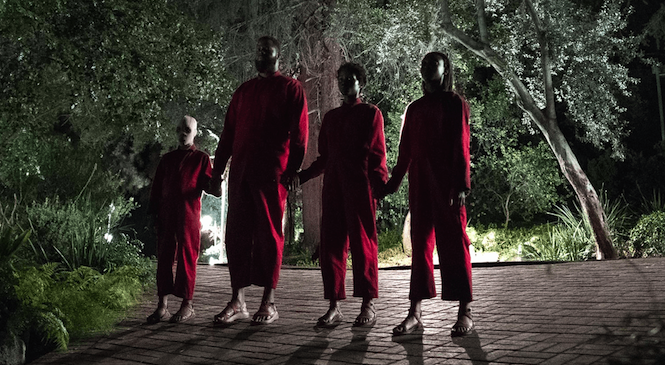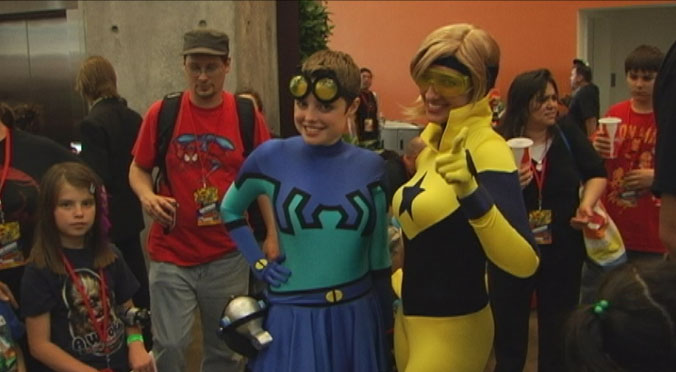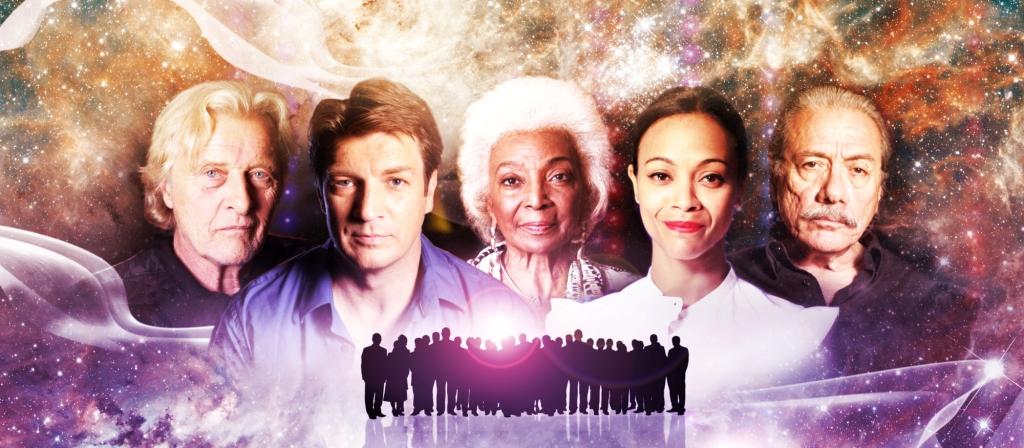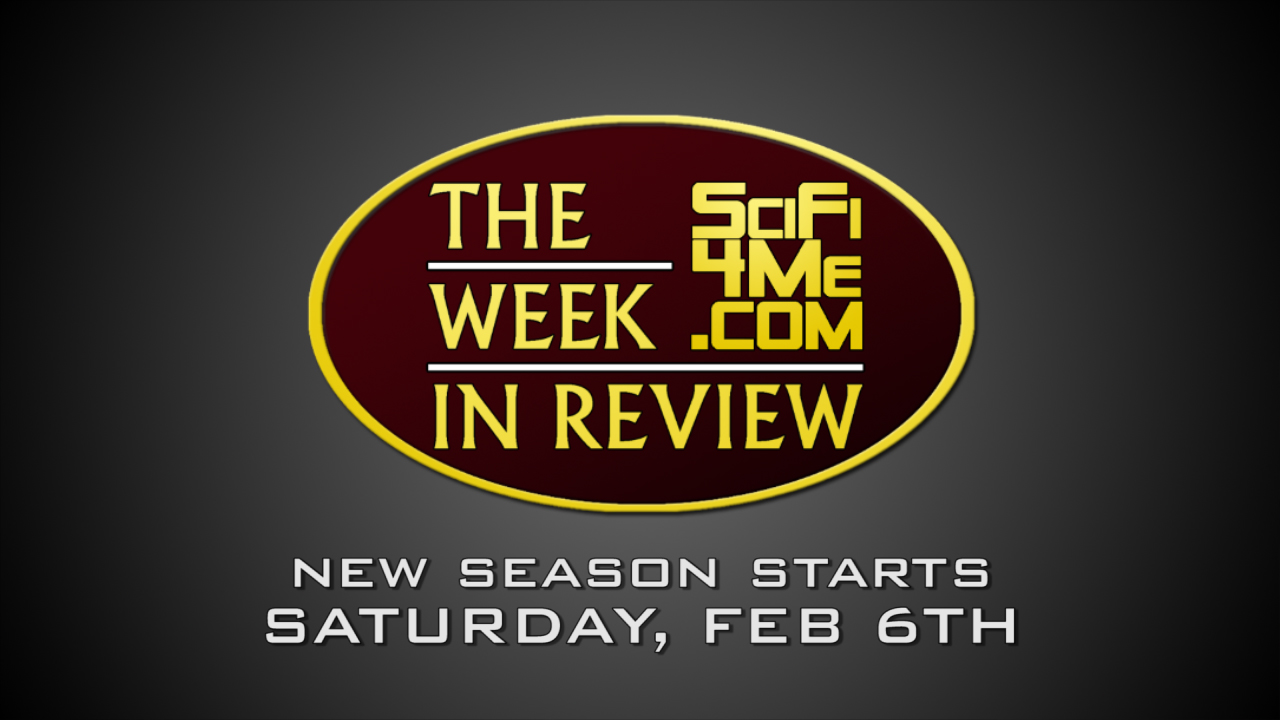US May Not Be The Film You Think It Is

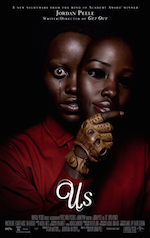 Us (2019)
Us (2019)
Screenplay by Jordan Peele
Directed by Jordan Peele
Produced by Jason Blum, Ian Cooper, Sean McKittrick & Jordan Peele
Rated R
Us isn’t the movie you think it is.
That’s not a criticism, as it happens, but you should be aware that the really creepy trailer, posted below for your viewing pleasure, makes the rather refreshing move of NOT spoiling the movie by giving away all the best bits of the film.
Us is also not the thematic followup to Jordan Peele’s first feature, Get Out, which may both disappoint or relieve you, depending on what you were hoping for. As much as I enjoyed Get Out – and thought the mixture of horror and satire in the service of a story about race, slavery and some people being just evil was wicked, smart and sharp – I’ve seen far too many directors make critically acclaimed films that audiences loved right out of the gate, only to follow them up with films that, well, disappoint. Peele would be in good company of course, as George Romero, Neill Blomkamp and Sam Raimi are among some of the many filmmakers who exploded onto the scene with great first films, only to have their sophomore creations land with a thud.
Luckily for him, and – heh – us, that’s not the film Peele delivers in Us. There is still social commentary, but it is of a different kind, and while it fits the story – is indeed at the core of the story – I honestly spent less time thinking about what Peele is saying about humans in general and Americans and the class system in the specifics than I spent enjoying one of the better horror films I’ve seen in some time. It doesn’t hurt that there’s something of a love letter to the horror films of the 80’s here, with shots and scenes that evoke Carpenter, Kubrick and maybe even a bit of Cronenburg, and certain – treading lightly here to avoid spoilers – events and personages connected to that decade figure heavily into the events of the film. I was a teen in the 80’s, maybe twice the age of the young Adelaide (Madison Curry) we meet at the beginning, but the film begins there and in a way ends there, and so many tiny touches reveal the ways that the horror films and the pop culture of that decade inform a lot of what Peele is trying to do with Us.
I do say try, because while there is much to enjoy here, there are some places where one should not stare directly at the plot or certain details and revelations. Us simply isn’t as tight a story as Get Out. Peele goes bigger here, and with that reach does come some issues. Certainly the motivations of one critical character raise as many questions as they answer, and certain logistical questions arise that, based on what we’re told, don’t make a lot of sense. There are also questions of scale that become problematic if considered too much. And if one considers an explanation that a character provides for the reasons behind all the events of Us, one will be left with as many, if not more, new questions as those answered. The good news is that I didn’t think about these issues much in the theater, but as I discussed the film with a friend as we left, and then more so on the drive home. Poking holes in the plot is something I do on a regular basis on my podcasts, so I watch things with that in mind, and even then it didn’t impact my enjoyment of the film. On the other hand, those 80’s horror films came with plenty of their own plot holes, and some of them are as scary now as they were then. Us does have the potential to have that kind of longevity.
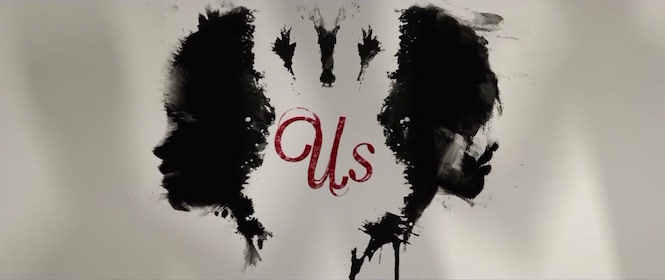
Fortunately, Peele avoids the worst sin of many a horror film – you know, the one where characters make mindbogglingly stupid decisions so that they can be right where the killer or monster needs them to be for the gory death scene? Yeah. That one. This isn’t to say that questionable decisions aren’t made, because they are. They just happen to be questionable decisions that don’t make our family in peril look like idiots. Nothing tears me out of a story more than dumb people doing dumb things, when any functional adult – and child in this case – would know better than to do the dumb thing. These are people who have seen movies.
Let’s talk about the cast, shall we? Us is a story about a family under siege after all, and while Lupita Nyong’o’s Adelaide Wilson is unquestionably the star here, it is an ensemble cast of truly talented actors that makes the emotional impact of the threat to the family work. Winston Duke made a memorable film acting debut playing the fierce warrior M’Baku in Black Panther, but here, as Gabe Wilson, he plays a kind, loving husband and father, whose enthusiasms do a great job of embarrassing his kids. The Wilsons’ oldest daughter, Zora, played by Shahadi Wright Joseph, is the modern teenage girl, glued to her phone and trying hard to ignore her annoying little brother. That little brother, Evan Alex’s Jason, is an awkward child playing in his own little world, often covering his face with his ever-present Chewbacca mask. All of these actors are relatively new to the screen, but they are powerfully believable as a middle-class American family, with all the love and irritation, laughter and fears that families have, and this strong family dynamic carries them through the nightmare world that arrives with that other “family in our driveway”. If that family dynamic didn’t work, the sense of threat and desperation necessary for the story simply wouldn’t work either, but it does.
In both families.
Because for every believable family moment with the Wilson’s, opposing them are The Tethered, a nightmare reflection of each of them, invading their home and actively trying to take not only their lives but their lives, replacing them in every way. I’m actively avoiding spoilers, because honestly, seeing this film as blind as possible is the way to go here, but the trailers make it obvious that the cast play not only themselves, but their malevolent doppelgangers as well. The “evil twin” is a trope that is easy to handle poorly, but the dual performances each actor and actress deliver here are outstanding, and watching the love of the Wilson’s twisted into murderous rage by their fun-house mirror images is genuinely chilling.
THAT’S ALL I’M GOING TO SAY ABOUT THE TETHERED, BECAUSE GO SEE THE MOVIE.
Seriously. Spoilers are not your friend here. Horror works best when you don’t see it coming.
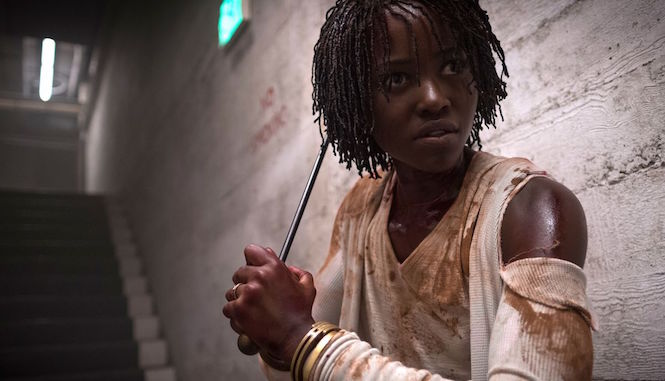
Instead, I will sing the praises of Lupita Nyong’o, on whose performance so much of Us relies. Breaking into the cultural consciousness with her powerful performance in 12 Years a Slave, Nyong’o followed up with providing the voice and motion capture for Star Wars: The Force Awakens‘ Maz Kanata, and Nakia in Black Panther. Frankly, I was a bit in awe of her here, especially for her performance of Red, Adelaide’s monstrous reflection. She portrays a surprisingly layered monster through stillness and graceful and terrifyingly precise motions of her body, partnered with an equally still face that explodes into a smile that has all the warmth of the depths of space. Her voice as Red grinds the words from her mouth in painful, guttural jerks and bursts into rage that chills and disturbs. Nyong’o is undeniably a talented actress – she’s held her own alongside Chiwetel Ejiofor, Michael Fassbinder and Paul Giamatti, and deservedly took home an Oscar for her performance in 12 Years a Slave – but her physicality here is both beautiful and ugly, infinitely human and actively inhuman. Get Out‘s Oscar win for Best Screenplay aside, horror films and their casts rarely win the awards they deserve, but right now, with this performance, Nyong’o is doing the work that should.
Notice must also be given to the performances of Elizabeth Moss (The Handmaid’s Tale), Tim Heidecker (Ant-Man and the Wasp), and the twin actresses Cali and Noelle Sheldon, who play the vapid, somewhat wealthier friends of the Wilsons with their own challenges to face in the story. You kind of want to hate these people, but you kind of don’t, and there is some laugh out loud dialogue about the relationship between Moss and Heidecker’s bickering spouses that carries through through some moments of extreme violence.
And it is a violent movie, as is befitting in a horror film, but Peele saves it up and lets it out in bursts and explosions. He lets it get brutal and in your face when it should be, and in the background when it needs to be. This is helped by the quite often beautiful cinematography of Mike Gioulakis, who shot Glass and It Follows. Us is also incredibly funny, something that the audience I watched it with got into greatly, filling the theater with laughter, often right before or after a shriek or gasp. Comedy and horror go hand in hand, and the actors in Us use it to show that weird excitement that fighting for your life brings out in people, and to diffuse the tensions of those violent moments that build throughout the film.
You may have noticed that I have written little about the race of the performers in the film, and that is for a number of reasons. First, I’m also a child of the 80’s like Peele, and many of the cultural touchstones of Us are mine as well. Some of the music is the music of my high-school and college days, and one musical note made me laugh out loud for both its complete inappropriateness for the moment and its absolute appropriateness for that same moment. My experiences in the formative decade are surely different than Peele’s, because I am older than he is and white, and in that decade, like any decade, the experiences of black and white America are different. There is no question that some of those differences are there on the screen, how could they not be? But it is the the things we all have in common – family, laughter, love, hate, fear and anger – that Peele and his cast keep in the forefront of Us.
Second, Us is that rare thing as a horror film where all the leads – heroes and villains alike – are black, but it is also a film that is for everyone who loves horror and well-developed characters. The race of its director and its cast is notable, certainly, especially considering how often black characters in modern horror films are comic relief and/or the first to die, but again, Us is not the sequel to Get Out. The themes Peele is playing with here are ones that apply to all the races of the American Dream, but overall it is a horror movie, with all the highs and even some of the lows of the horror genre. This is not to discount all the horror films featuring black casts that have come before Us, because there are quite a few of them, but you have to go back in time to find the best of them, especially to the 70’s, 80’s and early 90’s.
It begs the question why today’s studios waited so long to have films like this, with strong black casts leading and driving the story in a serious horror film. Is the same nonsense thinking that led studios to think audiences didn’t want a big budget superhero film with a female lead or black cast? That tunnel-vision that said that women aren’t 50% or more of the genre audience and white audiences won’t go see a “black” superhero film? Wonder Woman and Black Panther hopefully put that to rest, and black men and women have certainly been the leads in horror films before. Maybe not in such memorable roles and with talent like Lupita Nyong’o, but why did we have to wait so long for a film like this? These are black actors and actresses, playing a middle-class black family, in a film directed by a black filmmaker, and it is a film for black audiences, white audiences, and all audiences that want good horror films. Us isn’t perfect, but give me more filmmakers like Peele, who tell new stories with casts like this.
You know, for all of us.
![]()

